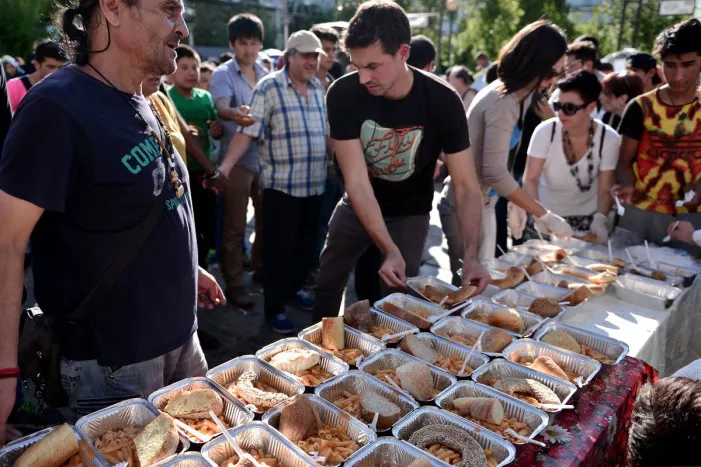The recent Russian invasion of Ukraine is taking a toll on global food security, manifesting prominently in rising prices on supermarket shelves, according to a report by the US Center for Strategic and International Studies (CSIS), a bipartisan, nonprofit policy research organization.
While global food prices, when measured in U.S. dollars, are witnessing a decline, local prices measured in national currencies are surging in numerous countries. The CSIS, in its report dated February 27, 2024, highlights that, as of September and October 2023, over a third of low-income countries (LICs) and lower-middle-income countries (LMICs) experienced food price inflation exceeding 15 percent. In the same period, LICs encountered a staggering 30 percent food price inflation.
The CSIS characterizes the invasion as the most significant military-related contributor to global food insecurity in at least a century. The report foresees severe ramifications extending into the next decade, predicting chronic undernourishment for millions by 2030 due to Russia’s ongoing war.
Globally, food security has become a critical concern, with a specific focus on the Caribbean region, where the annual cumulative food import bill exceeds $6 billion. In 2022, food inflation in the Turks and Caicos Islands surpassed the 30 percent mark.
In response to these challenges, CARICOM launched the 25 by 2025 initiative, aimed at reducing the regional food import bill by 25 percent, underscoring the growing apprehension about food prices and security.
The CSIS issues a warning that despite apparent decreases in prices, underlying concerns persist. “Receding global food prices mask an ongoing global food security crisis—low-income countries and lower-middle-income countries have relatively less fiscal space to support household-level food security,” notes the report. These nations, having depleted their national budgets during the Covid-19 pandemic, are less equipped to afford the escalating costs of imports.
Days before the CSIS report’s publication, during the 46th Regular Meeting of the Conference of Heads of Government of CARICOM, Irfaan Ali, Chairman of CARICOM and President of Guyana, emphasized the imperative to address hunger and malnutrition. President Ali revealed that 1.3 million more Caribbean residents experienced food insecurity in 2023 compared to the previous year. He attributed this alarming increase to rising fertilizer costs and imported inflation.
The 25 by 2025 plan was a focal point of the regional conference, reflecting the ongoing efforts of countries to strategize and mitigate the impact of food insecurity as global food prices continue to fluctuate.






















